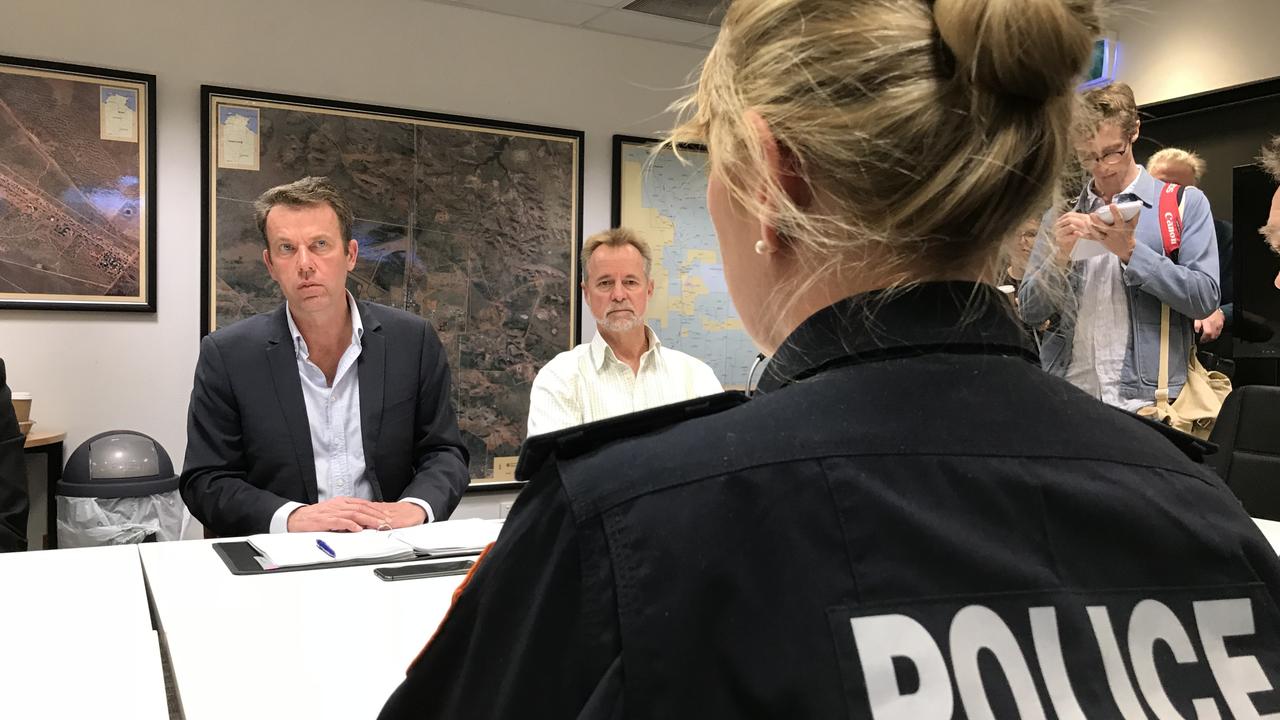Chidren committing serious crimes just to find something to eat, MPs told
CHILDREN as young as 10 are committing serious crimes including ram raids in Central Australia. And in many cases their motivation is simply desperation to find something to eat

CHILDREN as young as 10 are committing serious crimes including ram raids in Central Australia.
And in many cases their motivation is simply desperation to find something to eat.
That was one of the messages given to Federal Government ministers Dan Tehan and Nigel Scullion as they toured Tennant Creek on Tuesday in the wake of the child protection crisis sparked by the rape of a two-year-old girl in February.
Police Assistant Commissioner Michael White said young children were increasingly committing more serious crimes.
“Young people are now escalating their behaviour very quickly to stealing cars, and our experience in Alice Springs is they’re going from stealing bikes to doing ram raids in a very short time frame for a 10 or 11-year-old,” he said.
NT Education Department Barkly regional manager Lynette English said children committing crimes were often motivated by hunger.
“They go in and there’s nothing damaged except for where they’ve entered perhaps, and they’ve taken food, sometimes they’ve just sat at the table and eaten that food, and then they’ve left,” she said.
The ministers were told kids in town faced issues ranging from alcohol abuse to domestic violence and a lack of public housing.
Mr Scullion said fixing the problems started with ensuring children went to school.
“If you’re not waltzing with the education system you’ll be waltzing with the justice system pretty shortly,” he said.
GET FULL DIGITAL ACCESS TO THE NT NEWS FOR JUST 50C A DAY
Territory Families Minister Dale Wakefield said 151 child-protection cases had been reviewed since a major audit started in February.
But she was unsure if any of these reviews had resulted in a child being taken into out-of-home care.
Mr Tehan said more children might need to be removed in the short-term. “The key thing is that the children must be safe,” he said.


